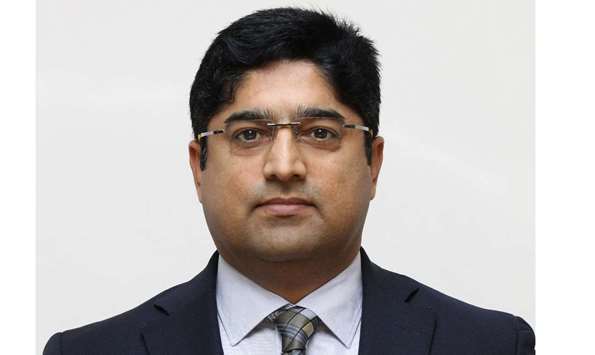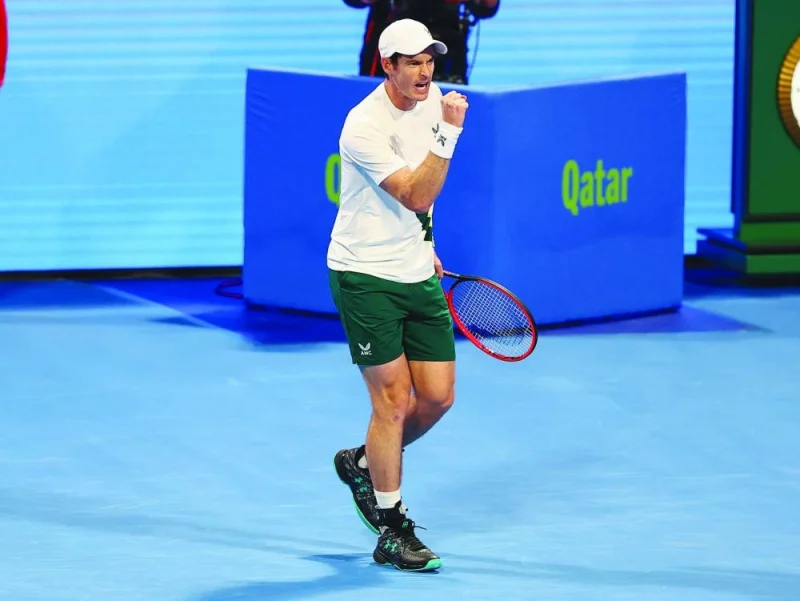After losing the first set, Murray – playing in Doha as a wildcard entry – rallied in remarkable fashion to post a 4-6, 6-1, 7-6 (5) win in 2 hours and 30 minutes.
Excerpts from a chat with Murray after his win:
Question: What was the key moment of the match, in your opinion? Just certain points, a few points here and there, or something different?
ANDY MURRAY: The very beginning of the match was important because he broke me in the very first game, and after that he didn’t have any chances to break until the 5-4 game in the third set. For me, the slow start cost me at the beginning. He did start well in the first game. He played the first two points of the match really well and then I served double fault in the breakpoint. That was an important moment in the match. Then in the second set when I managed to get the break of serve at the beginning of the set, that was a key moment. Then in the third set, the very beginning I had a breakpoint. Had I taken that, I think maybe I could have made the third set more comfortable. But after that, he started to gain a bit of momentum. Obviously the 5-4 game, because we played some great points in that game, but when I needed to, I served really well in that game. I hit two very good first serves to save two of the match points. In the tiebreak, I can’t remember exactly what happened there, but obviously he was up 3-0, I think serving, as well maybe. He obviously had the opportunity to close the match there, but I also finished the tiebreak well. So there were a lot of key moments.
You have a few titles here, but what is the most special match that you have played here?
Oh, that’s a difficult one, because some of these matches were, like, 15, 16 years ago, and my memory is not what it used to be (smiling). I remember winning against (Roger) Federer here one year. I played a really good match against him. And also I played a really good final one year against (Andy) Roddick, as well. That might have been the same year where I played Federer I think in the semis and Roddick in the final. I played really well that year. I remember very clearly the match I played last year here against (Roberto) Bautista Agut. That was one of the lowest points of my career. I was really struggling. I had some physical issues, but my game was also really not good. I had very little confidence and belief in myself at that moment, so I remember that match, too. Right now obviously I remember any match where you save match points. There are not many of them in your career. I don’t know how many times I have done it, but it would be 9, 10 times in a career where I played, like, 900 matches. So it’s quite rare and special to do that.
What do you think about the tournament here in Doha? You were champion in 2008 and 2009. What is the feeling of coming back to Doha?
The tournament has changed a lot. Obviously the city (of Doha) has changed a lot, especially with the (FIFA) World Cup coming here. We’re staying in a new hotel, in a completely new area of the city that has got amazing buildings, hotels and malls. The tournament as well has changed a lot for the players. It’s improved a lot. It wasn’t a bad tournament before, but it’s made big improvements here. Very good gym for the players. The food is excellent. The women’s tournament last week, they had a great field as well. A lot of top players are playing (this week) which is
obviously good for the game here.
As a general question, can you describe what’s the personal feeling of being 5-all in a deciding set? Is it stress? Is it a kind of pleasure?
I mean, this is something that probably helped me in my career, but in those moments I find it easier to concentrate and focus. I feel like a strength of mine – I’m concentrating really hard in those moments and my decision-making on the court improves because of that. One of my biggest strengths is my tactical awareness in matches. Sometimes like at the beginning of matches or there are periods of matches where it is a little bit flat or it’s 1-all in the second set, it’s sometimes not so easy to concentrate because the scoreline doesn’t help you with that. But when I get towards the end of sets or the end of matches, I feel like like those pressure situations I’m able to focus harder and it helps me play better tennis. I think that would be the case for a lot of the top players, but some players in those moments tend to make worse decisions under pressure. It’s one of the reasons why I have always felt like I played well at Wimbledon, because there has always been a lot of pressure and attention on me that although it’s hard to deal with it and I find it stressful, when I’m in the matches, I find it just easier to concentrate. When I’m focused and concentrating well, I tend to make better decisions and play better tennis.
You just said that maybe physically you are at the best in your career. Do you think that is it surprising for you, or you just feel like you can do that already?
I don’t believe I’m in the best shape of my career. I just gained a lot of confidence from what happened in Australia, more than at any other moment in my career, like just from a physical perspective because of what I was able to do there. I’m sure when I was 25, 26 that physically I would have been better than I am now and faster and moving better on the court. But what I did in Australia, like I said, it gave me lots of belief in the physical side, which the last four or five years I didn’t have. I didn’t really believe in myself physically as much as I would have done when I was in my mid-20s. So that’s something that is a really positive thing for me. So I know that now that I’m going to wake up tomorrow and maybe my body will be a bit sore, but I will still be able to go out there and compete well physically in the next round. Two-and-a-half, three years ago, and even at times at the end of last year I was struggling a lot physically. I lost a lot of confidence in myself because of that. Putting all the work I did in the offseason and continuing after the Australian Open has really has really helped me and something that I need to keep doing moving forwards. But it has been really difficult the last three or four years, because there is a balance like when I was 20 I could train as hard as I wanted and do all the exercises that I wanted and there was no issue. I could wake up the next day and feel fine. But now, at my age, I need to be more mindful of the amount of training that I’m doing.
What tournaments are you going to play this clay season?
My plan just now is to play in Rome and Madrid and hopefully the French Open, providing my body is good. I’ll do a training block after Miami on the clay. I’m going to do that in Europe somewhere for a few weeks, three or four weeks. I’ll train, try and get my body used to the clay courts and to monitor how my body is feeling. If it feels good, I’ll play Rome, Madrid, and like I say, hopefully the French Open, because the last – I don’t know how many times I have played it in the last five or six years, but when I have I physically was not good the year I played against (Stan) Wawrinka, and I can’t remember too many other times I have played it in the last five or six years.




